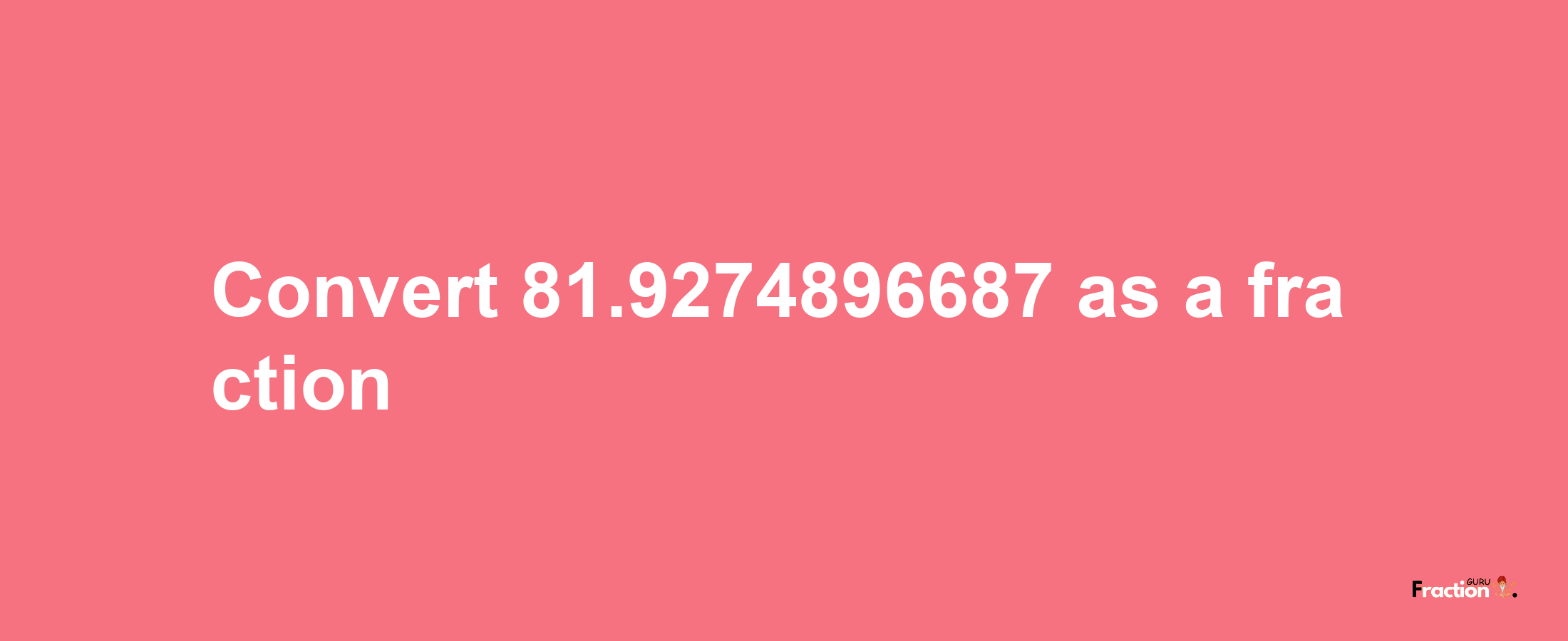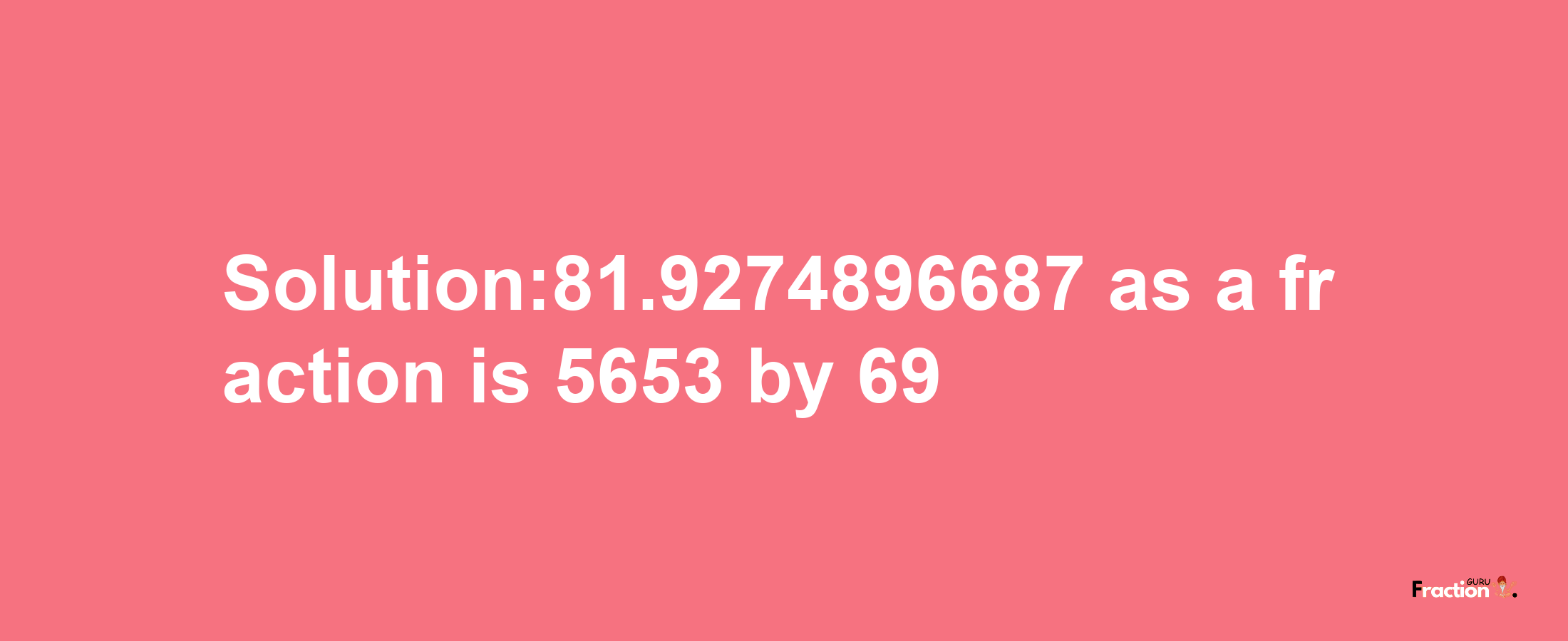Step 1:
The first step to converting 81.9274896687 to a fraction is to re-write 81.9274896687 in the form p/q where p and q are both positive integers. To start with, 81.9274896687 can be written as simply 81.9274896687/1 to technically be written as a fraction.
Step 2:
Next, we will count the number of fractional digits after the decimal point in 81.9274896687, which in this case is 10. For however many digits after the decimal point there are, we will multiply the numerator and denominator of 81.9274896687/1 each by 10 to the power of that many digits. So, in this case, we will multiply the numerator and denominator of 81.9274896687/1 each by 10000000000:
Step 3:
Now the last step is to simplify the fraction (if possible) by finding similar factors and cancelling them out, which leads to the following answer for 81.9274896687 as a fraction:
5653/69 / 1


